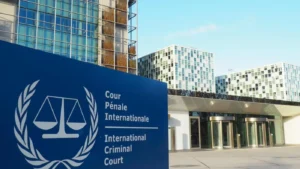SENATOR GILLIBRAND RELEASES NEWEST MILITARY SEXUAL ASSAULT REPORT: PUNISHMENTS FOR MILITARY SEXUAL ASSAULT ACCUSATIONS ARE RARE, INCONSISTENT & INSUFFICIENT
Washington, DC – U.S. Senator Kirsten Gillibrand, Ranking Member of the Senate Armed Services Personnel Subcommittee, today released her latest report on sexual assault in the military. Gillibrand’s new report found that many of the troubling trends from the previous two decades have continued to be a pervasive problem in the military. For the third year in a row, a review of case files at four of the largest military installations in the United States shows that levels of civilian survivors remain higher than reported in the Department of Defense’s (DoD) current Sexual Assault Prevention and Response (SAPRO) report. Gillibrand’s report also found that despite claims from DoD officials that they were tackling the astounding rate of retaliation against service members who had reported sexual assault crimes, not a single prosecution for retaliation could be found at each of the four bases.
Gillibrand’s report was produced after analyzing military sexual assault case files from the largest domestic base of each branch of the military — the Army’s Fort Hood in Texas, Naval Station Norfolk in Virginia, Marine Corps Base Camp Pendleton in California, and Wright-Patterson Air Force Base in Ohio.
“After reviewing yet another year’s worth of sexual assault case files at four of the biggest military bases in the country, I was appalled to see that sexual assault in our military is still as pervasive as ever: levels of civilian survivors remain high, overall prosecution rates of military sexual assault cases remain flat, and my office received no retaliation cases from the DoD despite six out of 10 survivors reporting that they had been retaliated against last year,” said U.S. Senator Kirsten Gillibrand. “These latest statistics are disturbing and they do not reflect the good order and discipline that is essential for our military to perform at its highest level, despite dozens of small-scale reforms passed by Congress, continued high-profile exposure in the media, and repeated claims by military leadership of zero tolerance for sexual assault. Congress should immediately pass my bipartisan bill to fix our broken military justice system, the Military Justice Improvement Act, so that our service members can finally have access to a justice system that is professional and fair.”
The full report can be found here and an overview of the findings is below:
· FAILING MILITARY JUSTICE SYSTEM CONTINUES TO HARM CIVILIANS, INCLUDING MILITARY FAMILY MEMBERS
o For the Third Year in a Row, Case Files Show a Higher Prevalence of Civilian Victims of Military Sexual Assault Than is Stated in the SAPRO Report
§ As shown in the review of 2013 and 2014 case files, rates of civilian survivors remain high. This includes civilian women living near military communities, non-military spouses of service members, and minors. They total 83, or 35%, of the cases analyzed (up from 31% in 2014).
§ This is significantly higher than the rate of civilian survivors that is stated in the DoD SAPRO Report for FY 2014 (12%) and the report for FY 2016 (13%). Additionally, it is important to note that the SAPRO report also excludes cases involving intimate partners, which fall under the purview of the DoD’s Family Advocacy Program and therefore remain uncounted in the DoD’s civilian victim count.
· LACK OF CONFIDENCE IN THE SYSTEM
o An Alarming Attrition Rate
§ Nearly Six out of 10 survivors do not report their attacks, according to the latest SAPRO report.
§ In case files analyzed, almost 14% of those who did report later opted out of the military justice process.
§ According to the case files provided, 33 out of 238 survivors, or 14%, did not move forward in the military justice system after making their initial unrestricted reports – the kind of public reporting that makes legal recourse possible. This includes 28%, or 19 out of 69 cases, at Marine Corps Base Camp Pendleton. While there are many potential reasons for this, one may be that survivors experienced or feared retaliation or a hostile climate. Concerns of retaliation suggest a real lack of faith in a commander-led military justice system.
o Survivors Aren’t Believed – Evidence of Survivors’ Testimony Routinely Discounted
§ One of the potential causes of such a low conviction rate (absent a confession) is that commanders, acting as the sole convening authority, almost universally discount the testimony of the victim and in one case mishandled and did not even report the case to law enforcement. An alarming number of cases do not go forward when the victim and accused provide conflicting statements on whether or not the sex was consensual. Of 42 cases where the accused and the alleged survivor provide conflicting statements, only 12 (29%) went to trial and only three (7%) were convicted of a sexual assault crime.
o Apparent Double Standards for Higher-Ranking Service Members
§ In cases where ranks were available, 62% of cases involved assaults by higher-ranking service members on lower-ranking service members. Several cases were analyzed where it appears that the higher-ranking perpetrator is believed over the lower-ranking survivor, which leads to either 1) survivors not participating in the military justice process or 2) when the military justice process does go forward, convictions are rare and sentences are low. There appears to be an inherent bias when commanders make military justice decisions in these cases, and because of this, the disposition authority must be taken out of the chain of command and placed in the hands of trained, unbiased military lawyers.
o Cases with Multiple Victims and Discharges in Lieu of Trial Demonstrate Need for Military to Crack Down on Predators So They Don’t Commit More Crimes
§ In ten cases, the accused was found to have had multiple victims. Additionally, many of the case files reviewed resulted in a discharge in lieu of trial. Out of the 238 cases, 12 were discharged in lieu of trial, and received no other punishment, because no military justice or non-judicial punishment went forward. This lack of justice, where the accused is simply discharged from the military and put back into the civilian community with no consequences, could lead to even more sexual assaults in our civilian communities.
o Perpetrators Not Only Sexually Assault, but Take Videos and Photos of Victims
§ The recent Marines United nude photo crisis shed light on a new reality in our military in the age of social media. There were five cases analyzed where the perpetrators not only sexually assaulted service members and civilians, but created their own video and photographic evidence of their assaults. Congress must address this disturbing aspect of the military sexual assault crisis head-on, and those responsible must be held accountable.
· WIDESPREAD PREVALENCE AND LACK OF PROSECUTION OF RETALIATION REMAIN AN IMPEDIMENT TO MILITARY JUSTICE
o ZERO Cases of Retaliation in 2015 Case Files Request
§ Despite specifically requesting retaliation case files, Senator Gillibrand received ZERO retaliation case files from the DoD. Even though there have been some efforts to stamp out the scourge of retaliation against military sexual assault survivors, this year’s SAPRO report found that nearly six out of 10 survivors say they have experienced some form of retaliation for reporting the crime.
§ The amount of retaliation remains essentially unchanged from 2012 to 2016, while fewer cases are moving forward to prosecution and conviction. Human Rights Watch found that service members who reported a sexual assault were 12 times more likely to suffer retaliation than see their offender, if also a service member, get convicted for a sex offense.
· INSUFFICIENT PUNISHMENT: PUNISHMENTS DO NOT FIT THE CRIME, INCONSISTENT SENTENCING
o Military Justice Results Remain Flat, Show No Improvement from Previous Reports
§ Despite some reform efforts, the overall prosecution rate of military sexual assault cases on these four bases remained stable over the three years Senator Gillibrand’s office has been analyzing these case files. Yet prosecution rates in the military overall have actually decreased, according to the latest SAPRO report. There were a total of 238 cases in 2015, down from 329 cases in 2014, but up from 107 cases in 2013. Only 23% of 2015 cases went to trial, and only 13% were convicted of a sexual assault crime.
o Just as in 2014 Case File Report, in Almost Half of All Sexual Assault Convictions, the Accused Confessed or Pled Guilty to the Crime
§ Out of the 238 case files received, only 31 (13%) of the accused were convicted of sexual assault. 15 (48%) of these 31 case files include statements where the accused confessed or pled guilty to the crime. It is possible that confessions were given in more cases, but given that the case files sent by the DoD are heavily redacted and incomplete, it is impossible to know for certain.
§ Approximately half of the sexual assault convictions resulted from confessions or guilty pleas, suggesting that the military needs to do a much better job of prosecuting cases that lack a confession or plea deal.
###





